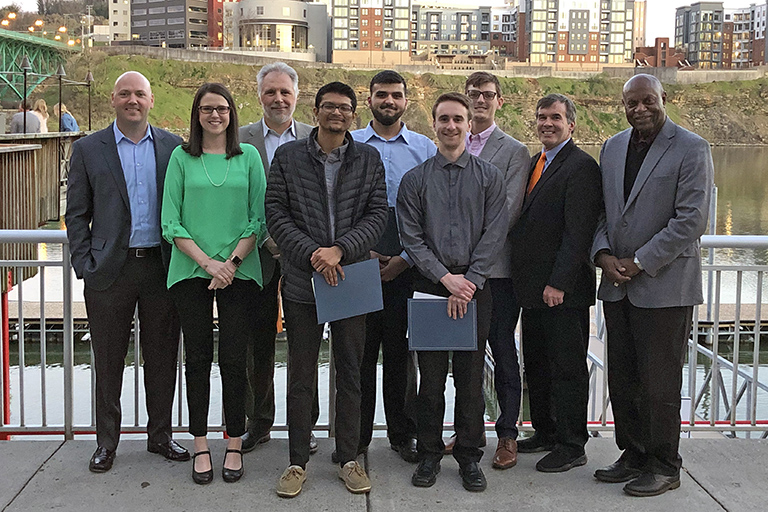UT First in Nation to Offer Nuclear Decommissioning Minor
While nuclear power continues to hold promise as a source of carbon-free energy, the age of some of the earliest plants has begun to dictate their decommissioning. This task involves taking nuclear plants offline, taking apart their buildings and machinery, and returning the locations to as close to a natural state as possible.
In addition to commercial plants, the government also has hundreds of facilities nationwide that require decommissioning. The Department of Energy alone has 16 active environmental cleanup sites across the country focused on safely cleaning facilities and land associated with five decades of nuclear weapons development and government-sponsored nuclear energy research.
With the need for experts in such areas certain to rise, the nuclear engineering department at UT recently began to offer a minor in decommissioning, the first program of its kind at a US university.
Currently, 20 students have chosen to pursue the minor, with four graduating in 2018 and another 16 on track to complete the program by next year.
“Our high national ranking is demonstrative of the respect for the quality of the work we do and the students we produce, and our established relationship with UCOR, which is responsible for cleanup efforts of the Department of Energy’s aging nuclear facilities across the Oak Ridge Reservation nuclear sites, makes us a natural go-to place for decommissioning expertise,” said Wes Hines, head of the Department of Nuclear Engineering. “This is an area of work and research that will only grow in importance in coming years, and we are well positioned to team with UCOR in those efforts.”
Hines first was inspired to begin planning for the minor following a presentation that Oak Ridge Associated Universities (ORAU) Executive Vice President Eric Abelquist made to the East Tennessee Economic Council in 2015 that underscored the point that more than half of the world’s 430 reactors were at least 30 years old.
Abelquist noted that the United States will decommission almost 40 percent of its current reactors by 2040, with each closure involving layers of deactivation, decommissioning, decontamination, and demolition—the “four Ds” of plant removal.
To meet that need will require highly trained students skilled in the ins and outs of nuclear technology, something UT is already providing through the program’s initial round of graduates.
Ken Reuter, president and CEO of UCOR, which is operated as part of a partnership between engineering firms AECOM and Jacobs, noted that estimates for the cost of such efforts range from $300 to $500 billion over the next 50 years, providing plenty of financial incentive and underscoring the importance of preparing the next generation of employees to safely and successfully accomplish that work.
“Developing and maintaining a trained workforce to work in hazardous nuclear environmental cleanup projects is essential to the future of companies like ours. Our industry needs the leaders that the UT program is producing. In Oak Ridge alone, there are jobs for two-plus generations of workers in environmental cleanup.”
—Ken Reuter
Tennessee Congressman Chuck Fleischmann called the new decommissioning minor “a great example of how the UT nuclear engineering department is responding to the nuclear industry’s current landscape.”
Hines said he was pleased with how well the program has been received and that he expects it to continue to grow as news of both it and its importance spreads in the coming years.
In the News
Read the full story from WBIR »
Contact
David Goddard (865-974-0683, david.goddard@utk.edu)
